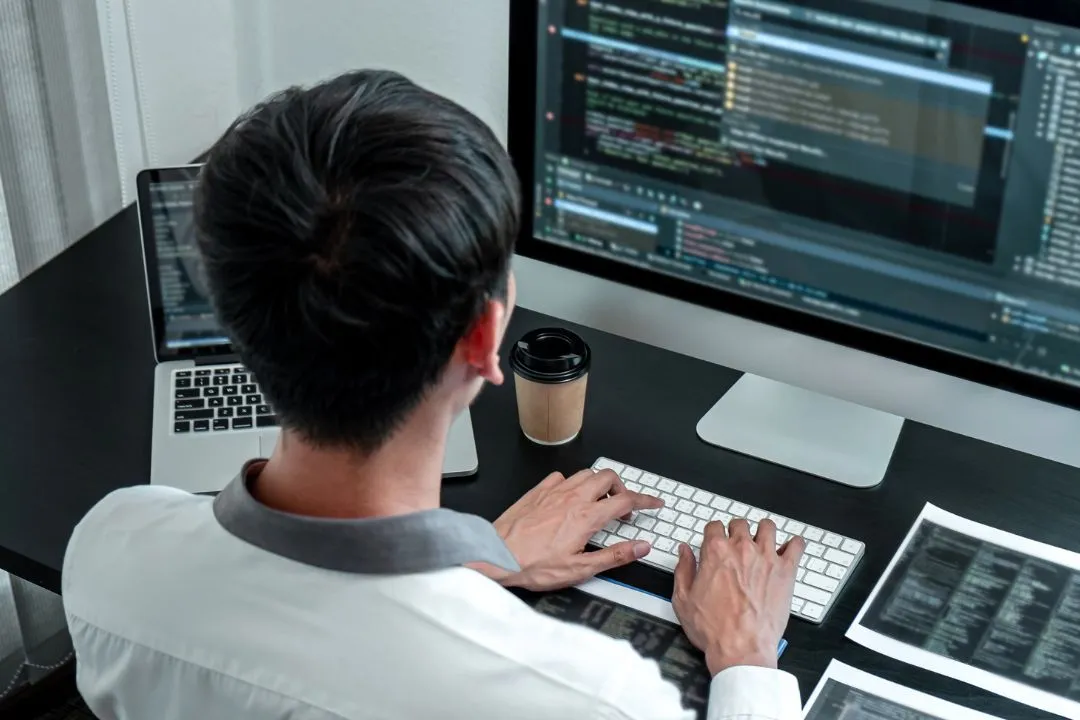Will AI Replace Programmers?

Every few months, a new AI breakthrough makes the rounds, and suddenly, everyone’s asking the same question: Will AI replace programmers? If you’re a software engineer, you’ve probably felt that momentary panic. But before you start polishing your resume for a career in goat farming, let’s break down what’s really happening. Spoiler: human devs aren’t going anywhere just yet.
AI’s Impact on Coding: The Numbers
AI-powered coding tools are shaking things up by making developers faster while also changing what the job looks like. Here’s what the stats say:
Productivity Boosts
AI coding assistants like GitHub Copilot are spreading fast. Over a million developers, educators, and students are using them, leading to a 98% surge in publicly available AI-generated code. (Source)
Job Market Shifts
By 2030, around 14% of workers worldwide might have to switch careers due to AI advancements. (Source)
AI is making coding easier, but it’s also reshaping the job market. The developers who thrive will be the ones who lean into higher-level thinking, problem-solving, and working alongside AI instead of fighting it.
The Human Edge: What AI Still Can’t Do
While AI devs are getting better at cranking out code, programming is so much more than just syntax and logic. It’s about solving real human problems, and that’s something AI still doesn’t quite get.
AI Lacks Real-World Context
An AI programmer might be able to generate a login system, but it doesn’t understand why users keep getting frustrated with the password reset process. It won’t sit in on product meetings, tweak features based on real user behavior, or have that “aha” moment after chatting with customer support.
At the end of the day, will programmers be replaced by AI? Not if the job requires understanding people. The best AI will still need human engineers guiding them, making judgment calls, and ensuring the end product actually works for users.
The Creativity Gap: Why AI Can’t Build the Next Airbnb
Think about the most game-changing software products—Airbnb, Stripe, Notion. None of them came from just following best practices. They were born from creative leaps, connecting dots that didn’t seem related.
That’s where AI falls short. It’s great at optimizing within a given set of rules, but it doesn’t think outside those rules. It can’t imagine a world where hotel chains get disrupted by people renting out their spare rooms. That kind of lateral thinking? Still 100% human.
Complex Systems Need Human Oversight
Modern software is a tangled web of interconnected systems. A single change in one place can break five things somewhere else. AI might be able to spot a bug in a function, but will it understand how that fix might affect database performance, API response times, or user experience? Not really.
This is why jobs that AI can’t replace include engineers who understand the big picture. Software development isn’t just about debugging; it’s about making strategic choices, weighing trade-offs, and ensuring everything works together seamlessly.
AI Is a Tool, Not a Replacement
So, will AI replace software engineers? Probably not in the way people fear. AI will change how coding happens, sure. But the programmers who thrive will be the ones who learn how to direct AI, not compete with it.The future of software engineering isn’t about humans versus AI; it’s about humans working with AI to build things neither could do alone.
Jobs AI Can’t Replace
Software development isn’t just about writing code; it’s about making high-level decisions, designing secure systems, and adapting to constant change. And that’s where AI still struggles.
Why AI Devs Won’t Replace Architects and Strategists
AI-powered tools are great at solving well-defined problems. They can generate boilerplate code, autocomplete functions, and even suggest optimizations. But when it comes to making big decisions, like whether to go monolithic or microservices, AI falls flat.
Architectural choices require a deep understanding of business needs, scaling challenges, and long-term trade-offs. That’s why jobs AI can’t replace include roles like:
- Software Architects – They map out entire systems, ensuring scalability, maintainability, and performance.
- Technical Product Managers – They bridge the gap between business goals and technical execution.
- CTOs & Engineering Leaders – They make strategic calls that shape a company’s future tech direction.
Sure, an AI can generate code, but it won’t understand why a startup with a small team might prefer a monolith over microservices or why a fast-growing SaaS company might need to rethink its database strategy.
The Security Problem: AI Code Isn’t as Safe as It Looks
Security is another area where AI falls short. Today’s cyber threats are constantly evolving, and secure coding requires not just knowledge but also foresight, something AI lacks.
In fact, AI-powered code generation tools often produce insecure code. Studies highlight just how often AI-generated code contains vulnerabilities: (Source)
- GitHub Copilot: 40% of generated programs contained security flaws from MITRE’s CWE Top 25 list. (Pearce et al., 2021)
- InCoder & Copilot: 68% of InCoder’s and 73% of Copilot’s generated code samples had vulnerabilities. (Siddiq & Santos, 2022)
- ChatGPT: Only 5 out of 21 AI-generated programs were initially secure. (Khoury et al., 2023)
- Real-world Copilot usage: 32.8% of Python and 24.5% of JavaScript AI-generated snippets contained security flaws. (Fu et al., 2024)
The biggest issue? AI code looks correct at first glance. But under the hood, it can introduce subtle security flaws, ones that only experienced engineers will catch.
That’s why companies still need human engineers with security expertise. AI might help speed up development, but it also increases the need for skilled professionals who can audit, patch, and secure the code it generates.
The Learning Curve: Why AI Can’t Keep Up
Software development is about constantly learning new frameworks, languages, and paradigms. AI struggles with this because it only knows what it’s been trained on.
By the time AI tools fully understand React, the industry may have already moved on to a new framework. Meanwhile, human programmers can:
- Learn from new documentation as soon as it’s published
- Experiment with cutting-edge technologies before they become mainstream
- Adapt to trends and best practices in real time
Will programmers be replaced by AI? Not likely, because the best engineers aren’t just coding; they’re staying ahead of the curve, something AI isn’t built to do.
The Future: Working With AI, Not Against It
The relationship between AI and software development isn’t black and white. It’s not about AI replacing programmers, it’s about how programmers use AI.
We’re moving toward a shift where:
- Entry-level coding tasks get automated, making programming more accessible.
- Mid-level developers use AI to speed up their workflow and improve productivity.
- Senior engineers focus on architecture, strategy, security, and other human-centric aspects of development.
Rather than killing jobs, AI is reshaping the programmer career path. The hierarchy is flattening, with fewer purely implementation-heavy roles and more opportunities for those who can direct, oversee, and collaborate with AI.
AI won’t replace software engineers, especially not the ones who adapt. The real winners will be those who know how to leverage AI as a tool and not see it as a threat.
The Bottom Line for Startup Founders
If you’re running a startup, the real question isn’t “Should we replace our engineers with AI?”—it’s “How can we use AI to make our team better?” AI isn’t a replacement; it’s an amplifier. The smartest founders will figure out how to make AI work with their developers, not instead of them.
Here’s what that looks like:
- Training engineers to write better AI prompts and double-check AI-generated code
- Automating boring, repetitive coding tasks so humans can focus on what really matters
- Exploring AI-powered dev tools—not just for internal use, but as potential products
The startups that win won’t be the ones cutting their engineering teams. They’ll be the ones using AI to make their engineers 10x more effective, turning human creativity and AI capabilities into a true competitive edge.
Share This Blog
Kofi Group has helped 100+ startups hire software and machine learning engineers. Will fill most of the roles we recruit on with 5 or less candidates presented.
Contact us today to start building your dream team!


